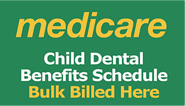- New Patient Special for $150
- Terms and Conditions Apply
- Learn More!

Many people find that their teeth get sensitive, particularly when eating/drinking an extremely cold or hot food/beverage or when stepping out into chilly environmental conditions. Almost all of us have experienced tooth sensitivity on occasion, but if it occurs regularly then this is a sign that you may have an underlying dental condition. In this blog post CB Dental Care will be sharing some common causes of sensitivity and how this condition can be managed.
Tooth sensitivity can affect a single tooth, or multiple teeth. Some people only experience mild sensitivity which may be intermittent, whilst others find the condition painful. Typically, tooth sensitivity is brought on by stimuli such as:
Teeth have a layer of enamel on their surface, which serves to strengthen the teeth and provide protection against sensitivity. The presence of excess amounts of bacteria (plaque) and an acidic diet can degrade the enamel, potentially exposing the dentine of the tooth. This will typically result in chronic tooth pain and sensitivity, and you will need to seek treatment to prevent your condition getting any worse.
Tooth Sensitivity Can Also Indicate Potential Underlying Issues
You should never assume that tooth sensitivity will go away on its own. Whilst we all experience sensitivity from time to time, chronic conditions indicate that there may be an underlying issue in need of addressing. It is not uncommon for those with tooth sensitivity to also be suffering from the following:
Tips for Preventing Tooth Sensitivity
The best way to minimise the risk of experiencing tooth sensitivity is to maintain a good oral hygiene routine (brushing twice daily, flossing) and reduce consumption of sugary and acidic foods. You may wish to try using a desensitising toothpaste, such as Sensodyne or Colgate Pro Relief.
It is important not too brush too hard, as this will damage the enamel. Dentists recommend using a soft bristled toothbrush rather than a hard toothbrush, and you should brush using gentle, even strokes.
Experiencing Tooth Sensitivity? Visit Central Brunswick Dental Care Today
Tooth sensitivity can be disconcerting, and it is important to determine whether you may have any underlying conditions such as tooth decay or gum disease. Central Brunswick Dental Care are open Monday to Friday 9:00am to 5:00pm. Call now on 07 3216 1100 to book an appointment. We look forward to seeing you soon.






Fill in the form and our friendly team will be in touch with you monumentarily
Sed ut perspiciatis unde omnis iste natus error sit voluptatem accusantium dolor emquesit voluptatem laudantiu.
Dr Jacky is extremely knowledgeable around teeth and gum health ! Extremely professional and makes you feel comfortable and makes you laugh . Lauren, the dental nurse, is also all above! I'm so happy ... Read More
Highly recommended Dr.Jacky. He is very caring and skillful during the filling process since I have been very nervous with “dentist”. After the work done and the next day I don’t feel any pain o... Read More
I have been going here for several years and so now does my family of all ages. We all use the different dentists and are all happy. I use Dr Jacky who is very professional, honest, caring and most ... Read More
BEST DENTIST IN BRISBANE! Had two fillings today, Dr Jacky is so attention to detail , very kind and generous! Will definitely look after my teeth 🦷 🦷
Simply the best and most comfortable procedures I’ve ever had. I always feel welcome and relaxed in the hands of Bryce and Lauren in this cooly designed , simple yet highly professional clinic. Alwa... Read More
